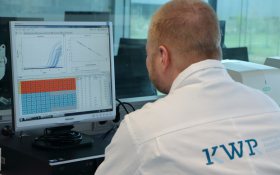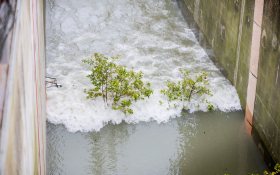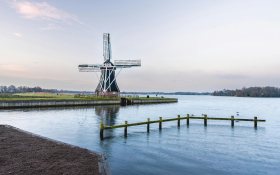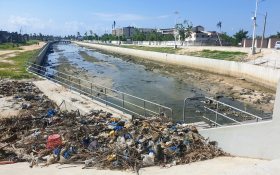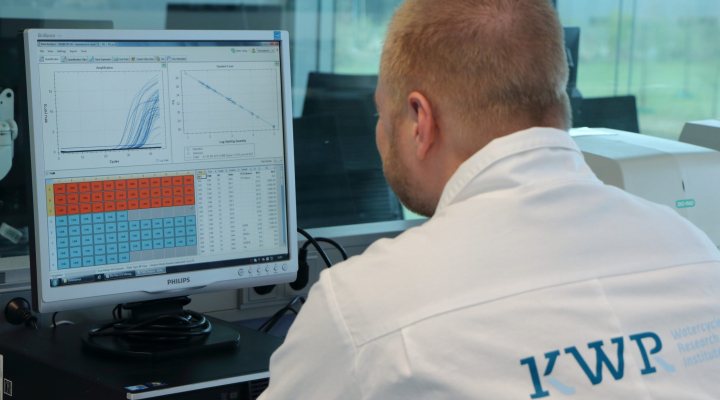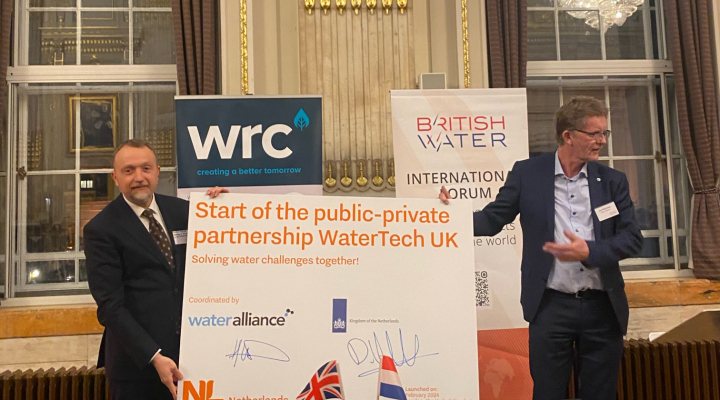
Launch of BluElephants in Palestinian Territories creates infinite water flow
Three long-awaited BluElephants are launched in Halhul on the West Bank. The innovative, small-scale wastewater treatment units are piloted for two years at two locations in the Palestinian Territories. These unique recycling units can transform wastewater into infinite water.


After a long journey from the Netherlands to the Palestinian Territories, the three BluElephant units have arrived at the locations where there is an urgent need for wastewater treatment: two at the President Mahmoud Abbas Governmental Hospital in the city of Halhul and one at the Red Crescent clinic, office building and apartments in the city of Salfit.
The name ‘BluElephant’ was born as opposed to white elephants, a metaphor for large infrastructures that are out of proportion, take huge investments, long planning, huge power draw, and often do not function in practice. The BluElephant units can treat six cubic metres of water per day, which equals the amount of wastewater from 150-200 people. The unit can be transported easily for use as decentralised wastewater unit, instead of, next to, or combined with large wastewater infrastructures.


Waste-water recycling
The BluElephants were designed, developed and financed in a public-private partnership between Jotem water solutions, design engineer Rob van Opdorp, Waterschap Vechtstromen, Saxion University of Applied Sciences, Ministry of Defence and World Waternet. The round-shaped unit, with a diameter of 2 meters, contains several treatment components. Activated sludge and traditional membrane filtration form the basis, which removes all bacteria and pathogenic contamination, including COVID-19 particles.
“The effluent is clean enough for high-end irrigation purposes, but can even be made suitable for drinking water, if a complementary treatment step is added”, says Frank Tibben (World Waternet), project manager of the Blue Deal partnership in the Palestinian Territories.
The pilot is part of the Dutch funded Blue Deal and WaterWorX programmes between the Palestinian Water Authority, the Municipalities of Halhul and Salfit in collaboration with World Waternet. World Waternet selected the Palestinian Territories as one of the areas for both programmes, and targets water quality and water supply. These water operator partnerships focus on peer-to-peer support and training.
Water crisis
Like many countries the Palestinian Territories suffer from severe water shortages due to growing water demands combined with extreme weather events due to climate change. Saving, recovering and reusing water is crucial in order to safeguard water supplies.
The Palestinian Water Authority focusses on managing water resources and wastewater treatment to prevent any more contamination of scarcely available water sources. Purifying and retaining wastewater for recycling are vital to prevent human and environmental health risks. Additional benefits from recycling waste water with a BluElephant include cost savings for trucking, no large network investments and no purchasing of water.
The next years the Dutch-Palestinian water operator partnership will closely test and review the functioning and applicability of the units in Palestinian Territories and elsewhere around world.
